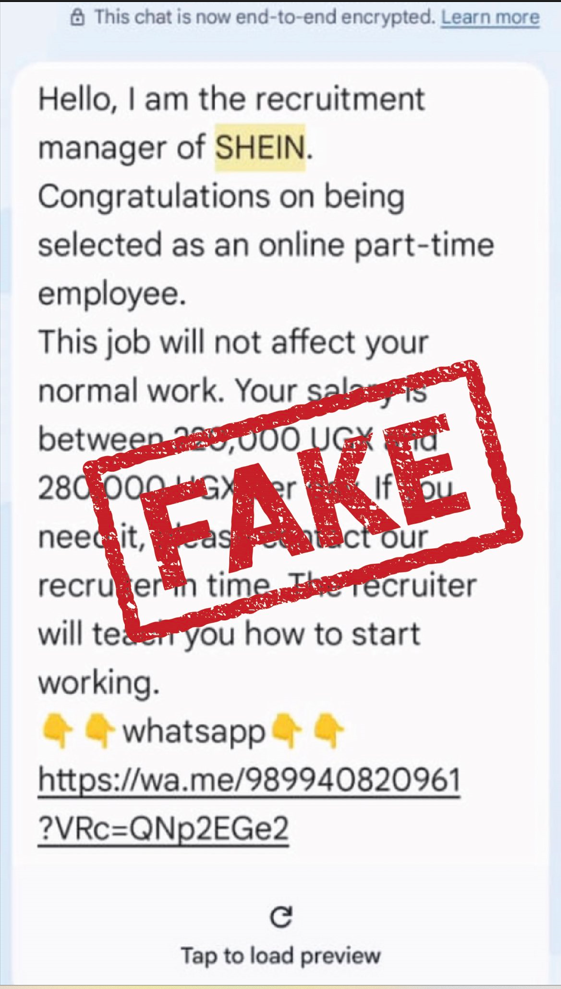A fraudulent recruitment scam in Uganda is targeting job seekers, falsely promising lucrative daily earnings through positions at SHEIN, a well-known global fashion retailer. The scam preys on people’s desperation for employment by offering non-existent jobs, often involving tasks such as social media promotion or product sales.
How the Scam Works:
- Initial Contact: Victims receive unsolicited messages or emails, often claiming to be from Shein’s HR or recruitment team. The message promises an easy, high-paying job with daily earnings, making it highly attractive.
- Job Offer: The scammers offer positions such as “brand ambassador,” “affiliate marketer,” or “sales representative,” requiring little to no experience. Victims are told they can start working immediately and earn daily payments.
- Upfront Payment or Registration Fee: In many cases, the scammer asks the victim to pay an upfront fee for “training materials,” “registration,” or “product stock,” with the promise that they will start earning as soon as they complete the tasks.
- Task Instructions: Victims are often asked to promote Shein’s products on social media, recruit others to join the program, or sell products to earn commissions. As tasks are completed, the scammer demands further payments for additional resources or tools, such as “premium access” or “sales kits.”
- No Payment or Job: After paying the requested fees, the victim receives no job or earnings. The scammer may disappear, leaving the victim with no way to contact them or recover their money.
How to Avoid the Scam:
- Be Cautious with Unsolicited Job Offers: Legitimate companies like Shein do not typically offer jobs via unsolicited messages on social media or email. Always verify the source of the communication.
- Research the Company: If you receive a job offer from Shein or any company, research their official website or trusted job boards for information on actual vacancies. Shein’s recruitment process is formal and would not ask for money upfront.
- Avoid Paying Fees for Jobs: Never pay upfront for job opportunities, training, or recruitment. Legitimate employers will never ask for payment in exchange for a job or earnings.
- Look for Red Flags: Be wary of job offers that promise high earnings with little effort or that require you to recruit others to earn. These are common tactics used in scams.
- Report Suspicious Activity: If you come across any suspicious recruitment offers, report them to local authorities to prevent further scams.
Conclusion:
The scam often involves fake job offers, upfront payments, and false promises of quick income. To protect yourself, always verify job offers, avoid paying any fees, and be cautious when approached by unfamiliar recruiters.





